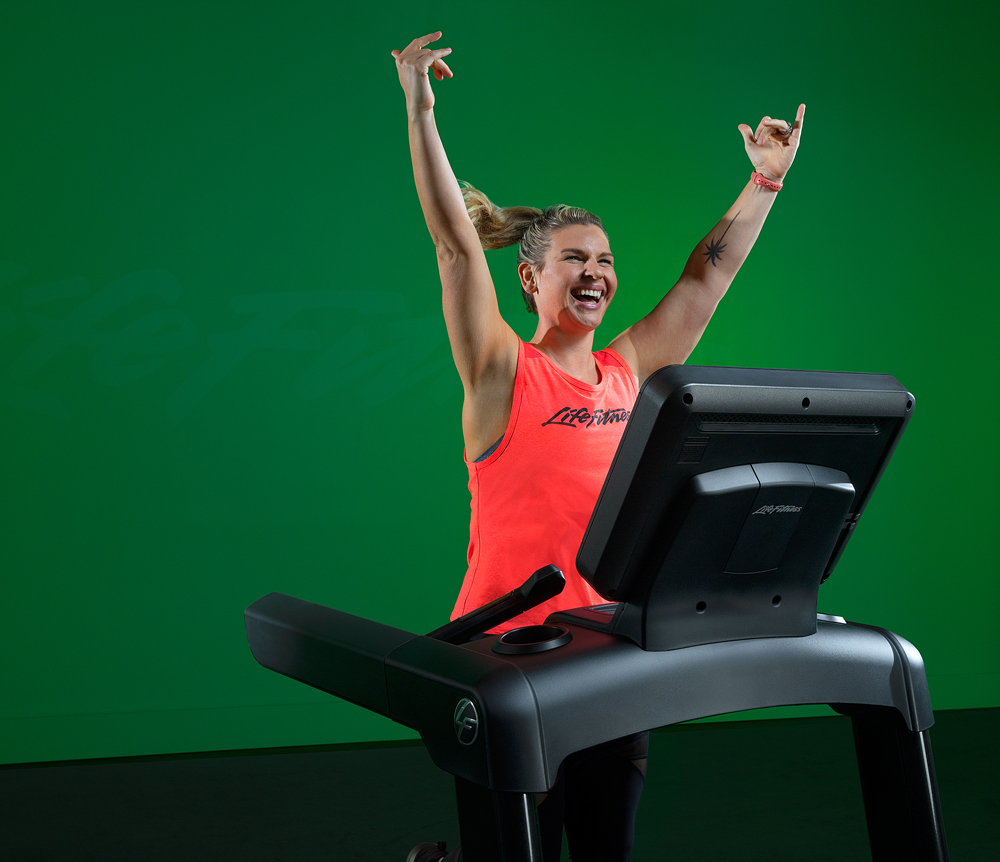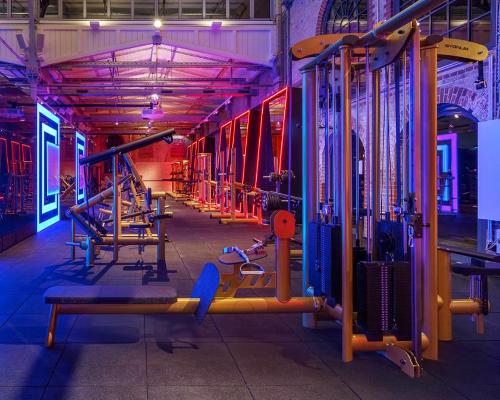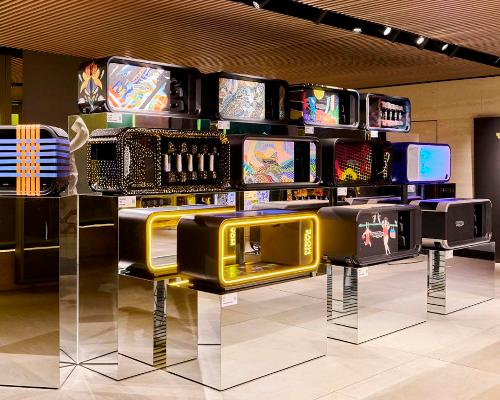features
Tech Talk: What’s the future of home fitness?
The days of a home workout being a video in the living room are long gone. The coronavirus pandemic is driving a massive pivot to digital, which is transforming the sector. Kath Hudson reports
The coronavirus pandemic has seen the home workout sector experiencing exponential growth in every direction, with some on-demand providers reporting 800 per cent increases in take-up.
This comes off the back of a record year for at-home digital in 2019, which saw an explosion of new and repackaged entrants to the space, including Echelon, MYXfitness, iFit via NordicTrack, Tonal, Mirror and Openfit via Beachbody co-founder John Congdon.
According to 2019 research from L.E.K. Insights, digital fitness content market growth in the US alone was expected to translate to 14 million new subscribers and a US$3.3 billion market opportunity this year – and that was before the pandemic.
Research also shows that 85 per cent of club members also exercise outside clubs.
The pandemic has prompted the majority of operators to launch a digital offering – some in partnership with existing fit tech companies, some creating customised solutions, and some simply jumping on Zoom.
Whatever follows, 2020 will be remembered as the point where fitness went digital, but will this ultimately create competition for clubs or will it grow the market? We ask the experts.
Director of REPEAT, Barry’s Nordic, Lenus, Wexer and Playbook

For those who want to get fit, but don’t join a gym, the same three reasons are consistently given: intimidation of the gym environment, price sensitivity and lack of time. Working out at home addresses all of these points: no one is watching, it is typically cheaper and there is no commuting time. Plus home workout apps are very good at building habits and holding people accountable – often much better than operators.
In gyms we cater best to those with a mid- to high-level of gym confidence. Those with less confidence are best catered for at home, so if gyms offered a digital extension to their physical offering they could expand the reach of their appeal.
Gym memberships tend to be made up of 20 per cent of people who are going to leave regardless of what you do, 20 per cent that you couldn’t force to leave and 60 per cent who could swing either way. For those in the middle 60 per cent, a digital offering could continue to engage them and make the gym value proposition more sticky and valuable.
I think it would be crazy for the industry not to include digital in their member journeys and pure digital memberships in their offering. There is significantly more growth in the digital space and the industry is well placed to make use of this opportunity because of the huge database of members and lapsed members.
A major brand tracking why members were leaving found a double digit response for those going for digital services. We could support members much better by incorporating digital fitness services to help them reach their goals. There has been a significant change in consumer behaviour and we need to change accordingly. This could be a way to reduce churn. When a member leaves it’s not because they’ve achieved their goals, it’s because they’ve lost motivation and stopped working out.

Deloitte: corporate finance advisory leisure team lead

Virtually every form of physical activity has grown in the past 15 years and, even though the rate of growth is slowing, the industry is still growing. There doesn’t appear to be any slowdown in people becoming more health conscious, so the untapped market still offers great potential. The more product offered, the more revenue it can capture.
Therefore, although the home fitness market could present a challenge to the bricks and mortar side of the sector, I think it is more likely to be additive than disruptive. There is evidence that fitness is important to an increasing number of people and they are prepared to fragment their spend: for example with a budget gym membership, as well as paying for boutique classes. Real enthusiasts might be prepared to buy an expensive piece of kit to use at home and still pay for classes or to use a gym.
However, if you fear that it may disrupt your business, then you need to get into it and disrupt yourself. Digital fitness is a less capitally intensive business than physical clubs and if you get the product right then you can have unlimited people doing a class. Digital interaction with your membership represents another way of keeping engagement levels up, so that attrition levels stay manageable.
There will be some people who would never join a gym, but would do online training and there will be people who switch between digital options and club membership, in both directions, but more products will engage more people and make the pie bigger.

Life Fitness: UK consumer and dealer sales manager

We’ve seen a boom in the home fitness market. The Peloton buzz, in particular, has driven some traction for the consumer market, and heightened demand for other home products, particularly with the zero per cent finance and flexibility of purchasing which is available for these products.
Currently growth is focused on the premium end of the market – time poor urbanites – who would otherwise have trouble fitting a workout into their busy lives and want to get the maximum benefit in the shortest possible time. But while time and convenience is high on the list for home exercisers, there are a number of people who just prefer to work out at home: they might be intimidated by the gym environment, or just prefer to be alone and choose their own music.
One down side of home exercise is that the infrastructure is more limited than in a commercial environment, so as products and solutions change it can be harder to stay on trend. Without expert help to hand, people can also get into a comfort zone, just doing the same and not seeing any progression. On the up side, this could then encourage them to join a gym.
Digitisation offers the opportunity to create home exercise communities. It also has the opportunity to engage new audiences, particularly tech-savvy people who might be drawn by the digital element.
Gyms are going to have to adapt to this trend and understand that the member journey is not just what happens inside their club. If members are offered the chance to do an instructor-led workout at home, it adds value to the membership and a full circle experience.

Les Mills Media: CEO

The two largest generations of fitness users – millennials and gen Z – make up 80 per cent of the fitness market and are carnivorous consumers of 24/7 digital streaming, including exercise content.
Despite this demand for streaming and downloadable fitness content, it had only been adopted by 5 per cent of operators prior to the pandemic.
According to the Club Intel 2019 International Fitness Industry Trend Report, European club operators were clear leaders, with an adoption level of 14 per cent. Levels in other regions of the world ranged from 4 to 7 per cent.
Mobile apps – which are used by more than 80 per cent of people to connect with businesses – had only been adopted by 20 per cent of the fitness industry. So it’s clear there’s a lot of untapped upside in the digital home fitness space, particularly with much of the world currently in lockdown.
Les Mills on Demand (LMOD), which allows users to stream Les Mills programmes from any digital device, has seen significant growth in recent years, but since the COVID-19 outbreak, we’ve seen an 806 per cent increase in sign-ups as we’ve worked with club partners to help them support members through the use of LMOD.
Clubs offering a co-branded LMOD subscription to members are able to boost member loyalty and keep them in the exercise habit at times like this, when they can’t make it to the gym.
As fitness moves from bricks and mortar to digital, operators who pursue tech assertively will be the ones who thrive in the next chapter of the industry.




































































